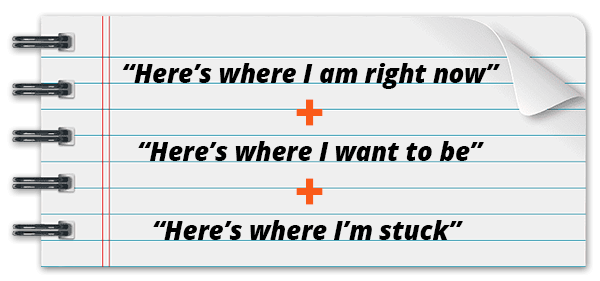Author’s Note: The following is an article I originally wrote for the site Filmeditingpro.com titled “The Editor’s Guide To Networking (Especially If You Can’t Network)” republished in its entirety below.
» Click here to access the original article at Filmeditingpro.com
As a Hollywood feature film, trailer, and television editor of 20 years (recent credits include Cobra Kai, Burn Notice, Empire, Glee) I’m no stranger to spending days, weeks, or even stretches of months at a time with limited human contact as I hunker down in my windowless ‘edit cave.’ (we editors are a unique breed) While it’s incredibly advantageous for creative purposes to have hyper focus as a superpower, from a networking perspective it can make it nearly impossible to meet new people.
Early in my career especially I often found myself so focused on becoming awesome at my editing craft that I completely neglected the importance of also making sure people actually knew I could edit. Once I focused an equal amount of time, energy, and attention on building my network as I did perfecting my craft, multiple doors opened and my editing career exploded.
Sure, sounds simple enough. They all say “Network, network, network” and “It’s all about who you know!”
I probably don’t need to convince you of the tremendous value of building your network to rapidly advance your editing career, but is it possible to network when for whatever reason you can’t network in person?
I strongly believe there is no better time than RIGHT NOW to begin building relationships with the right professionals who can provide you advice, mentorship, support, and perhaps even refer you for your dream job when the time is right.
So if “In Real Life” (IRL) networking isn’t your forté or not an available option, what networking options are left? Perhaps it’s time to embrace the power of the good-old-fashioned cold email.
3 Reasons Why Writing Cold Emails Is The One Skill You Must Master
In my Insider’s Guide to Writing Great Outreach Emails I dive extensively into why networking from your laptop actually gives you a distinct networking advantage over much of your competition. Here’s a brief summary of why I believe writing cold emails is the most important ‘soft skill’ you must focus on if you want to be first in line for jobs.
1. The most important people you need to connect with are (probably) introverts just like you
There are few things more frustrating than trying to build your professional network from a cold, dark, windowless room (that you spend all your waking hours in)…except trying to connect with other people who are also hiding in their own dark rooms!
The number one fear people have when it comes to sending cold emails is, “I don’t want to bother people,” so they often choose to hit up mixers and live events because people there are more approachable. The problem with this strategy, however, is that your network expands based solely upon the random people who choose to show up at these events. You could conceivably spend your entire career going to weekly mixers and NEVER connect with your ideal mentor or editing idol.
Therefore, given the likely introverted nature of the editors, assistants, etc that you really want (i.e NEED) to connect with, the chances are extremely high those people who could offer you career advice or even mentorship are stuck in their own dark rooms, working long hours, and avoiding networking events because they too are most likely introverted.
Trust me – People want to help you succeed, but you can’t expect them to come to you. You have to reach out to them. Multiple editors at all levels of the industry are launching mentorship sites (Hollywood Editing Mentor and Sidetime being the latest examples) because they want to use their available time to give back to the community (while also earning some income in the process).

Companies like Sidetime and Hollywood Editing Mentor can be a good resource for job and networking related questions
Cold emails are the easiest way to start building connections with the right people and slowly lay the groundwork that will lead to meaningful relationships and eventually mentorship (or even work opportunities).
2. Cold emails are a strategic way to build your IDEAL network
I believe the biggest error that so many people make with IRL networking at events and mixers is not taking into account who will attend those events. They have no strategy. If you continually meet the same people doing the same types of work as you at the same level, it’s no surprise that you continually get the same kinds of jobs, you pigeonhole yourself doing work you don’t enjoy, and you never “get your break.”
The shotgun approach to networking is to walk into any random event and chat up as many people as possible, talk about what you do, why you’re awesome, and collect business cards like they’re going out of style.
“You never know who might reach out. Can’t hurt, right?”
YES, it can hurt! You’ve just wasted an entire evening with nothing to show for it. IRL networking might help you meet new people, but in the best-case scenario your network expands to become whoever shows up to the same events as you.

While networking is crucial to advancing your career, in person meet-ups like mixers aren’t the only way to achieve the same results
If you want to see real gains from your networking efforts, you have to step outside your networking comfort zone. Consider shifting your focus to building your network via extensive & targeted research that leads to strategic cold emails sent to the right people at the right point in your career journey. Using this approach you can build any network of professionals in any field you’d like. The possibilities are infinite, and 100% of the work can be done from your laptop.
This is the sniper approach to networking.
3. Those with referrals and “friends on the inside” get the gigs first
Whenever new job opportunities arise, it’s no secret that those with existing referral networks of friends and colleagues will have a huge advantage and reap ‘first dibs’ as most employers, companies, and individual editors are just too busy to spend days or weeks seeking the ideal candidate. Instead they’ll simply ask, “Do you know anyone good for XYZ position? I don’t have time to interview new people.”
You can either be on the outside looking in and complaining about all the other people who “got lucky,” or you can use your time wisely to begin building your referral network NOW so that when the time comes that someone asks around, YOU are the editor/assistant/PA/etc your friend or colleague referred to the open position.
You can either do the hard work upfront, or you can defer the hard work until later when you have to apply for random job postings day in and day out. I know which option I’d choose.
Also keep in mind that when people ask around for referrals, it’s usually not the most qualified candidate that is passed forwards, it’s the most RECENT candidate.
Building relationships via email is the most effective way to become the most recent person on someone’s mind so that when the time comes you get put on the shortlist of people considered for the next job opening.

Don’t forget to take a break from your dark edit bay and keep your network fresh – you never know when that next great position could open up! (Pictured: Zack hard at work, photo by Michelle Alizabeth Blake)
5 Tips to Ensure Your Cold Emails Get a Response
Now that I’ve convinced you it’s worth trading in your Netflix binging time for networking time, let’s talk about the purpose of your email outreach.
As I detail in excruciating detail in my Insider’s Guide to Writing Great Outreach Emails, the purpose of your cold outreach emails is NOT to ask for a job, ask to be “considered the next time they hear of something,” have your resume reviewed (or even worse be passed forwards), or get detailed feedback on your demo reel.
Your initial cold outreach has one simple purpose: To earn a response.
Only after you earn a response can you begin a conversation that potentially leads to all of the above. Stop thinking about an outreach email as just another transaction. The objective of your email is to build a meaningful relationship.
Knowing your purpose is simply to receive a response, here’s how to drastically increase the probability someone will respond:
1. Make sure your subject line is compelling and provides value to the recipient
I don’t care how amazing your email is, how compelling your story might be, or how ridiculously talented you are…if the person never opens your message, you’ve lost the battle before it’s even begun. Before you spend hours writing the perfect email, make sure you’ve written a compelling subject line that will grab this person’s attention and convince them to open your message. Immediately requesting someone’s valuable time and expertise is the worst first impression you can make.
Here are a few HORRIBLE examples of subject lines:
- Editor available
- Lunch?
- Can I get your advice?
All of these scream “I want your free time!!!” without first providing value.
Let’s say that you’re interested in connecting with John Wick editor Evan Schiff. Providing value to him could be as simple as reading this article about cutting the music for John Wick and then opening your outreach email with the subject line:
“Your music editing in John Wick was OUTSTANDING!”
Put yourself in Evan’s position…wouldn’t you want to read a message with this as the subject line?
I know I would.

Make sure you’ve got a good method to keep track of who you’ve emailed, along with the dates, times, follow ups, outcomes, etc. It’s important to be organized when you’re sending hundreds of emails!
2. Make your message short, concise, and skimmable
I hate to break it to you, but nobody wants to read your life story if they don’t know who you are. I know how terrifying it can be to reach out cold to someone you admire who could potentially change your career with a simple referral, but contrary to what you might think, this is not your “One chance!!!!!!” As I’ve already mentioned, the sole purpose of your first email is to earn a response, so avoid the need to cram everything you’ve ever wanted to share in your introductory email.
Crawl into the brain of your recipient for a moment and think about what kind of outreach email you would respond to. Even if someone’s life story were compelling, do you want to read all about it in a single message? And even if you did want to read it, do you know how to respond?
Remember that although you’ve placed a tremendous amount of importance on this message and it has the potential to change your career, this person’s life will go on just fine if they ignore your email.
In addition to being conscious of the length of your email, you also need to focus on the format. In the digital age of smartphones and scrolling with our thumbs we have all become “skimmers” more than “readers.” Do not send one giant block of text. Make it clear the point of each paragraph by using line breaks and providing “flag posts” so the person understands the purpose of each paragraph.
An example of this would be starting a paragraph with “I’m reaching out because” to instantly allow anyone skimming your message to very simply and quickly answer their two most important questions:
- Who are you?
- What do you want from me?
3. Make it obvious you didn’t copy/paste a generic template (i.e. have you done your homework?)
I know how tempting it is to be as efficient as possible with the limited amount of time you feel you have to network. We editors all love our Macro keyboard commands that get us from 8 keystrokes to 2 keystrokes…but outreach messages are NOT the place to focus on efficiency.
Sending 500 generic messages with a 1% response rate gets you 5 responses…and they’ll be tepid at best.
Sending 10 highly personalized, thoughtful, and hand-crafted messages to the right people with a 70% response rate gets you 7 responses…all of which have the potential to lead to a genuine relationship.

Remember to thoroughly research your cold email recipients to craft that perfect personalized message
This is the difference between the shotgun approach and being the sniper.
There is nothing that will get your cold outreach message thrown in the Trash folder faster than it reading like a copy & paste template. Be personal, demonstrate that you have invested valuable time to learn more about this person, watch content they had a hand in creating, and then express the positive difference their creative choices made on you.
At the end of the day, creative people pursue their professions because they want their work to have a positive emotional impact on the world, whether that’s through laughter, happiness, sadness, drama, tension, or otherwise. Don’t overthink what it means to “provide value” – it can be as simple as reaffirming someone’s life choices by expressing how their work has impacted you on a personal level.
In short: Make your outreach unique.
4. Make it clear how this person can help you
I can’t tell you how many times I’ve been told by someone desperately struggling in Hollywood, “Nobody in this business wants to help me.”
Think for a second about where you are right now in your career. Now imagine someone reaching out to you with a similar backstory as yours, similar challenges, and facing the same obstacles that you perhaps overcame just a few years ago. If this person seems genuine and hard working with good intentions, wouldn’t you want to help them succeed? I’ll bet you’d go out of your way to help them!
Now imagine receiving a cold message like this instead:

No doubt this person has good intentions, but there’s only one way I can help them: Giving them a job (or referring them).
Except I don’t know anything about this person. At all. I want to help people, but sorry – This is an instant ‘Delete.’
It’s not that people don’t want to help you. It’s that you haven’t made it clear enough how they can help you.
Make it clear how you are similar to the person you’re reaching out to. Find common ground. Increase familiarity so you don’t come off as another generic person hungry for a job.
Here’s the “magic formula” as coined by students in my coaching & mentorship program:

Keep in mind this doesn’t have to solely be about major career transitions or insurmountable hurdles in your life. It can be as simple as improving your craft. Let’s say that you’re interested in how professional Hollywood editors set up a timeline. The magic formula is as simple as:
“I’m currently learning more about proper media and timeline organization, and ultimately my goal is to become an expert at organization so I can maximize my creative time. I read that this is an area of expertise for you, and I’m curious what my next steps could be to learn even more (or if you’d be willing to share screenshots of a timeline I could study?).”
5. Make your message easy to respond to (with a simple “Ask”)
At this point you’ve stopped selling yourself and asking for work right away, you’ve ditched the templates, and your message is short and concise. And you’ve also made it clear who you are, what you want, and where you need help.
Now it’s time for the “ask.” This is where most people blow it.
Once again, crawl into the brain of the recipient and review your questions (your email does contain at least one clear question, yes?).
- Are your questions easy to respond to?
- Can the recipient respond quickly?
- Have you asked too many questions?
Let’s say that you’re obsessed with editor Eddie Hamilton and his 8 tips for editing success. Here’s the WRONG way to ask your question:
After reading your Film Editing Pro article I’d love to know even more about becoming a successful editor. What is the best advice you can provide beyond these 8 tips for someone who wants to edit big budget films like you?
Dude…Eddie just gave you eight knowledge bombs and you want more? Best case, because Eddie is an amazing human being he’ll respond, but his response will be REALLY generic.
“The best advice I can give you at this point is to work hard, stay focused on improving your skills, do your best to network with people, pay your dues, be patient, and when the time is right you’ll get your opportunity.”
No offense…but thanks Captain Obvious. I know all of this already.
The problem here isn’t the quality of Eddie’s answer, it’s the quality of your “ask.”
Here’s the RIGHT way to ask your question:
After reading your Film Editing Pro article I was intrigued specifically by what you said about the importance of working with others (Tip #7). As an up-and-coming assistant editor, building a solid relationship with my editor is vital to me. What additional strategies can you suggest to help me provide value to an editor and build that relationship?”
BAM. That’s specific, actionable, and very concrete. Eddie knows exactly how to answer this and can do so quickly.
In short: Make your ‘ask’ as simple and clear as possible. Don’t ask more than one or two questions (you can always follow up and go into more detail later). Remember, the objective of your first cold outreach message is to begin the conversation and earn a response.
Use Your Time Wisely
I believe that years from now the defining characteristic that will separate those who succeed versus those who continue to struggle is how each person chooses to prioritize their time.
Are you the kind of person “waiting” for your next opportunity? Or would you rather “create” your next opportunity?
You have two choices:
1) You can continue to go to random mixers and live events, meet whomever chooses to show up any given night, and build an ad hoc network of people similar to you. Or…
2) You can accept the reality that email is the #1 tool you have at your disposal to strategically build relationships and grow your professional network from your laptop. There is no better time to do so than NOW.

